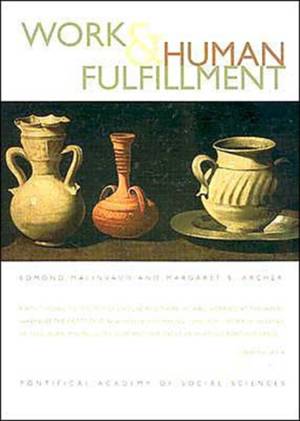
- Afhalen na 1 uur in een winkel met voorraad
- Gratis thuislevering in België vanaf € 30
- Ruim aanbod met 7 miljoen producten
- Afhalen na 1 uur in een winkel met voorraad
- Gratis thuislevering in België vanaf € 30
- Ruim aanbod met 7 miljoen producten
Zoeken
Omschrijving
Catholic Social Teaching has been described as the best kept secret of the Church. This is particularly regrettable now that the Catholic Church is one of the few global voices to uphold the 'primacy of labor over capital'. Rapid transformations in the world economy mean that growth, productivity, and profitability are no longer closely associated with increases in employment. In Work and Human Fulfillment, members of the Pontifical Academy of Social Sciences and their colleagues explore the recent changes in the world of work. The book includes a summary of the key positions taken by the Church on work and employment, and extracts of the papers presented and discussed at the three plenary sessions of the Pontifical Academy in 1996, 1997, and 1999 focusing on the following areas: Present situation and current trends of work across the world, globalized economy, contemporary institutions and their response to unemployment, capital labor, analysis of policy options, and culture of work.
Specificaties
Betrokkenen
- Auteur(s):
- Uitgeverij:
Inhoud
- Aantal bladzijden:
- 329
- Taal:
- Engels
Eigenschappen
- Productcode (EAN):
- 9780970610652
- Verschijningsdatum:
- 1/01/2005
- Uitvoering:
- Paperback
- Formaat:
- Trade paperback (VS)
- Afmetingen:
- 220 mm x 287 mm
- Gewicht:
- 1170 g

Alleen bij Standaard Boekhandel
+ 195 punten op je klantenkaart van Standaard Boekhandel
Beoordelingen
We publiceren alleen reviews die voldoen aan de voorwaarden voor reviews. Bekijk onze voorwaarden voor reviews.











